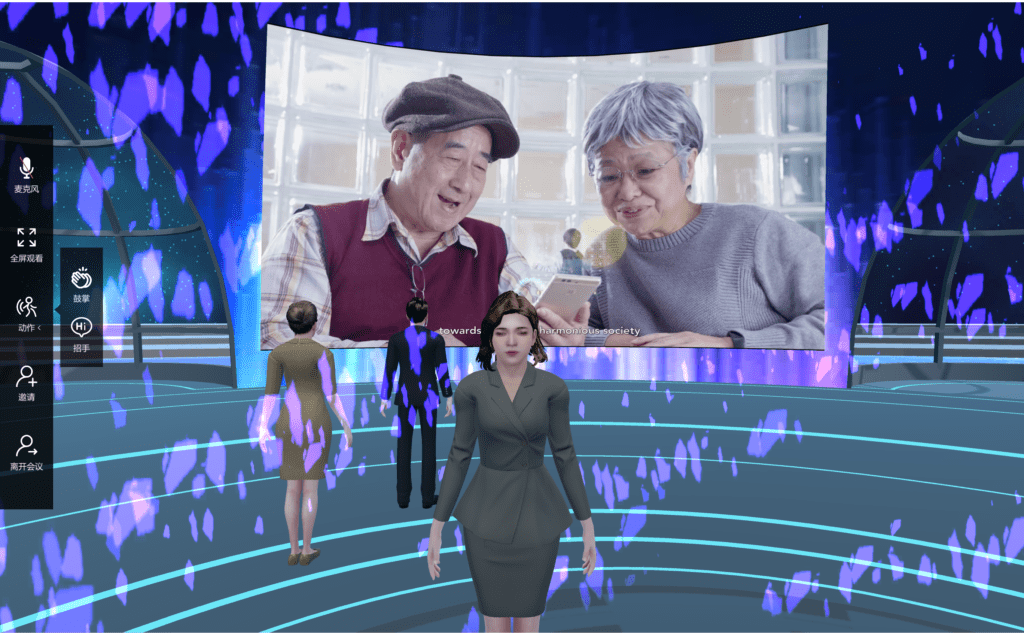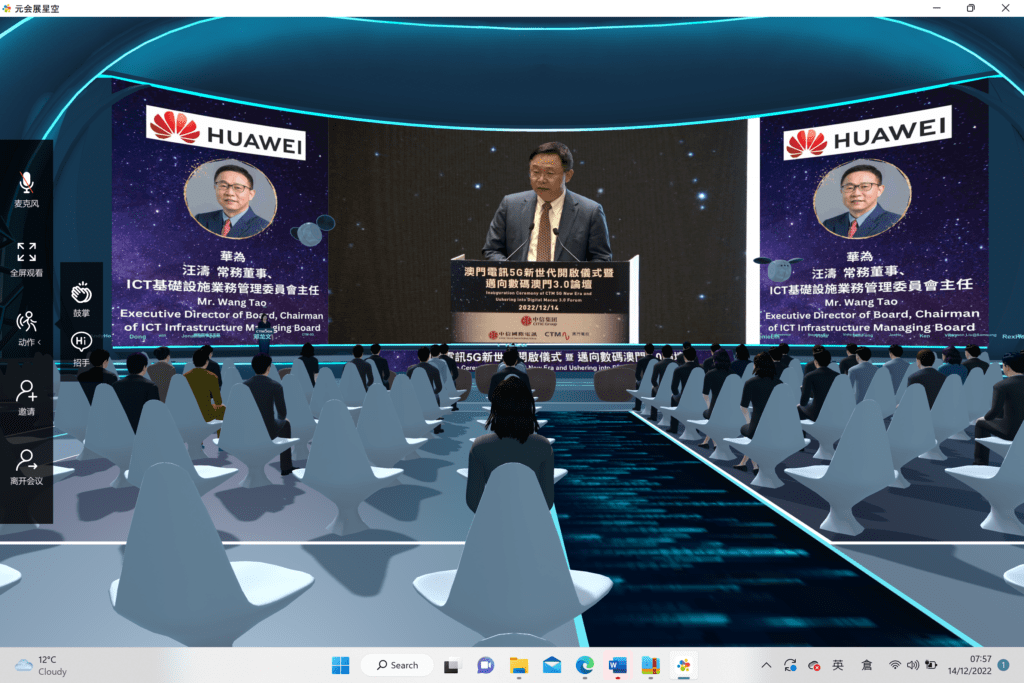One month after the official launch of the new 5G network in Macau, more than 50,000 customers are already using it, CTM reported. Huawei consultant believes the new technology will have a major impact on the city’s labor context and economic diversification
One month after the official launch of the new 5G network, already more than 50,000 customers are using it , revealed telecom operator, CTM, at an event.In order to celebrate the first month since the launch of the 5G network in Macau, a 5G New Era Inauguration Ceremony and Digital Forum Macau 3.0 were jointly organized by CITIC Telecom International and CTM.
Also read: Macau launches public tender for 5G licenses
The ceremony brought together several heavyweights from local politics and industry, including Edmund Ho, vice chairman of the Chinese People’s Political Consultative Conference, and Wang Guo Quan, vice chairman of CITIC Group, in an event that combined offline and online format.
The Forum also took place simultaneously on the CTM Metaverse, allowing guests from the mainland and abroad to interact and participate within a virtual environment, which PLATAFORMA joined.

With the support of CITIC Group and CITIC Telecom International, CTM says it is making progress in realizing the “Digital Macau” smart city project.
INTELLIGENT CITY
In his opening speech at the Forum, Arthur Chen, chief consultant for industrial network policy at Huawei, shared his expertise in building a new infrastructure for a smart city and his views regarding industry transformation.
Chen pointed out that the pandemic brought many socio-economic challenges in the past three years, but also ended up acting as a catalyst for the diversified development of the digital industry.
Also read: What to do with Macau’s 5G?
Huawei’s consultant noted that in recent years, the SAR Government has not only promoted the APP online exhibition, but also promoted some augmented reality (AR) tourism services, including “Arraial in Taipa” and “Arraial in Herbals.” These types of AR travel services make use of technology to offer people a realistic travel experience in an online format.
“I have used and experienced it. I believe it is a very innovative and attractive format for the younger generation,” he pointed out.
Chen believes that the development of the immersive content industry will be the future trend, with metaverse-related applications providing good opportunities for the city.
The consultant pointed out that under the metaverse framework, virtual interactions will also become an important part for future digital industrialization, but warns that these developments require a whole new, more complete technological infrastructure.
COMMON DIRECTION
In 2020, China’s National Development and Reform Commission redefined the new digital infrastructure to include three main areas: information infrastructure, convergence, and innovation. This set of ideas has many similarities to the three elements of smart cities proposed by the Smart Cities Council in 2020: transportation, infrastructure, and clean energy, which form the core foundation of a smart city.
“If Macau aims to be a smart city, it is necessary to consider whether it can offer a complete smart connectivity and cloud networking platform that offers a profitable investment for local or foreign capital to promote the application of digital technologies in Macau’s industry,” Chen pointed out.
Also read: 5G network covers most villages in north China’s Shanxi
The consultant cited the European Union’s digital development as an example, pointing out that the industry has a new direction of thinking: “Digital development requires industry consensus, which needs to be promoted by all market participants. Secondly, the freedom and rights to use the network and the Internet need to be protected. Some security measures are needed in the new infrastructure to protect against fraud and criminal acts,” he notes.
Citing data from the Statistics and Census Service of Macau (DSEC), in 2021, the tertiary sector accounted for 92.3 percent of Macau’s GDP, while the secondary sector accounted for only 7.7 percent.

“We can thus highlight the process of transferring the tertiary sector (business services) to a fourth sector (knowledge industry) in the future […] we can see that in the 2nd Five-Year Plan of the Macao SAR Government, five major directions were mentioned,” he indicated.
Read also: CTM and China Telecom secure 5G service licenses
These include modern finance; health industry; culture and sports; MICE and trade; and high-tech. Chen argues these are the best directions for Macau’s future development.
The Huawei consultant believes that in the next three years, Macau should consider how to leverage the three networks established by CTM (Wi-Fi, 5G and fiber optics) and form a strong digital base that will help develop these five industries, migrating Macau’s economy to the fourth sector.



